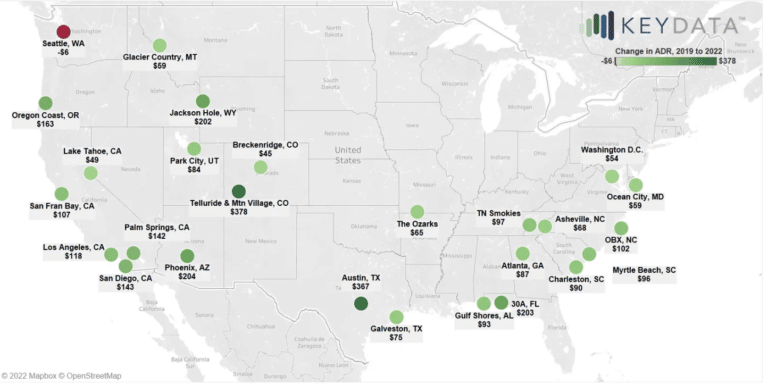Table of contents
Know Your Guest by Superhog provides intelligent guest screening with damage protection, but what exactly is guest screening?Guest screening is the process of proactively assessing the risk posed by each guest, through legal, non-discriminatory, and detailed checks.In the past, this was a heavily manual task, which involved a lot of time and a lot of effort in order to perform a comprehensive check. However, with the professionalization of the industry, there are now plenty of providers out there who offer processes that are automatic and can be built into your booking journey.The vacation and short-term rental industry are in hot demand, meaning guest screening is becoming more and more crucial for property managers and platforms alike.Two main questions that might spring to mind when you hear the term guest screening might be:What does guest screening actually involve? And why is guest screening needed?
What does guest screening involve?
A comprehensive screening process will ask guests to submit their personal information, such as their name, their date of birth, their physical home address, and a copy of their official ID (such as a passport or driving license).
This information will then be processed to determine whether the ID is stolen or fake and whether the provided details match those on the ID.
Additionally, guests provide their mobile phone number and email address, which are then checked to see if the registered owner matches the provided name and when the email account was created (this is to check that it wasn’t created just for this booking).
Following this, a biometric/liveness check usually in the form of a selfie or a short video will be performed to make sure that the guest matches the photo on the provided ID. Here’s a full expert’s guide on guest screening for vacantion rentals.
For an extra layer of protection, property managers or OTAs may choose a screening provider that provides credit/debit card verification, to ensure that the guest has enough funds to pay for the stay.
Having this function will help reduce problems such as chargebacks and protect your business further.
Others may choose to go for a provider that also performs background checks, which involve checking against criminal databases and terrorism watchlists.
To summarise, depending on the depth and profoundness of the guest screening process, guests are requested to share the following personal data:
Name and last name
Date of birth
Mobile phone and email address
Physical home address
Copy of official ID (e.g., passport, driver’s license)
Selfie or video for a biometric/liveness check
Credit card information
Why is guest screening needed?
By investing in an effective screening process, property managers, hosts and platforms will save money in the long run, minimizing incidents of damage by deterring bad guests and protecting their properties from illicit parties and criminal activity.Having a screening process is also useful when it comes to holding guests accountable for their actions.For example, if a guest steals from the property or commits a crime, then you will have all the necessary information to pass on to the relevant authorities. Here is a guide on how to get good guests.Offering an effective screening process to your overall package for your users will also help with acquisition, and will show prospective users that your business takes the safety of its hosts and their properties seriously, increasing the trust and confidence in your business.
Doesn’t the platform I’m using screen guests?
Unfortunately, a lot of platforms in the industry are lacking in this department. Here’s a look at the processes for Airbnb, Booking.com and Vrbo:
Airbnb now requires all guests from certain countries to verify when they create an account.
Booking.com does not require guests to verify in order to make a booking. The responsibility is placed on hosts and property managers, who are able to set “guest requirements”, such as:
Guests must provide a valid email address
valid credit card information
and evidence of a good track record on the platform (e.g., have no reports against them or be banned from any properties).
Vrbo encourages guests to obtain Verified Identity badges by asking them to submit their personal information, which includes: their first and last name, email address, mobile phone number, physical address, and date of birth.Vrbo then performs checks to see if the information provided is accurate.
As we can see, these popular platforms don’t require guests to verify as part of the booking process, which is why you can’t and shouldn’t rely on them to keep your properties safe.
Superhog: advanced guest screening with damage protection
Fitting seamlessly into your guest journey through our fully API-based system, Superhog provides property managers, hosts, and platforms with an advanced guest screening process and embedded insurance that keeps their properties and their users safe.Every validated booking is protected by our industry-leading $5,000,000 Host Guarantee (covering guest property damage), and we offer a damage deposit/waiver toolkit, to help protect your business further.Interested to learn more? Book a demo with our expert team to find out how Superhog can help you implement our guest screening process into your new or current booking journey.
FAQ
What are the two main purposes for conducting a guest screening?Usually, homeowners, hosts, and property managers conduct guest screening for two reasons. They either want to prevent fraudulent bookings or save their properties from damage. In both cases, hosts and property managers secure themselves from unnecessary expenses.
How long does it take Airbnb to verify ID?It may take up to 24 hours to get your ID verified. However, Airbnb approves accounts within a few hours. To check your verification status, go to the verification tab of your Profile.
Speak to us today!
Your Page Title








![Airbnb Rental Arbitrage [And How to Succeed at It]](https://blog.hichee.com/wp-content/uploads/2022/10/arbitrage_950X800-768x647.webp)



